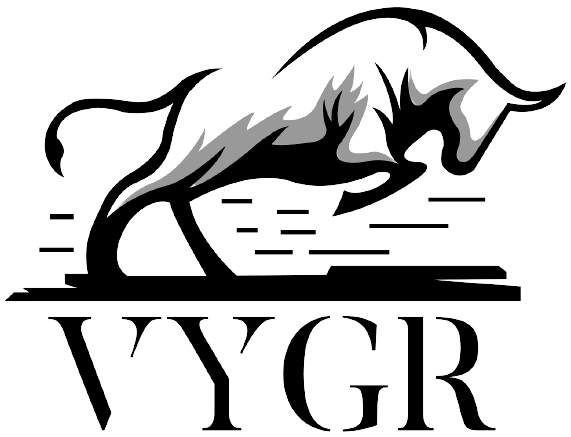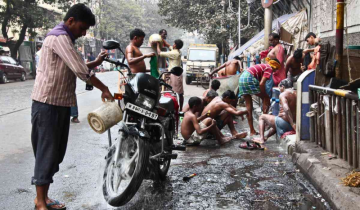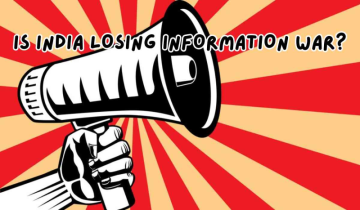Inside the shadowy halls of power, where covert plots run rampant, there is a group of unsung heroes known as whistleblowers. Equipped with nothing but their values and an unwavering sense of fairness, they fearlessly challenge the existing status quo. Whistleblowers, who frequently make sacrifices in their personal lives, become agents of positive change by exposing wrongdoing and enacting social reforms. Don't get me wrong, I'm not completely agreeing that they always have good intentions, but should we not justify things for once and for our own mind when someone cries wolf??
A Surge in Whistleblower Activity: A Reflection of Changing Social Norms?
Whistleblowing is going through a significant change. For example, between 2013 and 2022, the Securities and Exchange Commission (SEC) in the United States received over 12,000 tips regarding whistleblowers; this represents an astounding 273% increase in reports (source: Government Accountability Office, 2023). Similar patterns can be seen all over the world, suggesting that people are becoming more vocal about wrongdoing and that society is becoming more vigilant about it. There could be a number of reasons for this increase in activity, such as increased media attention to successful cases of whistleblowing, the growth of secure reporting avenues, and perhaps even a general trend in society towards greater accountability and openness.
_1714829950.jpg)
The Moral Compass and Inner Turmoil: What Motivates Whistleblowers?
There are several strong reasons why people come forward with information. They are driven to action by a strong sense of civic duty, their unwavering moral convictions direct them, and they have an intense desire for accountability. They must make difficult choices and frequently weigh the need to further the greater good against the possible consequences to their safety, reputations, and careers. Their path is fraught with moral conundrums, necessitating great bravery and an unwavering commitment to justice.
A Treacherous Journey: The Perils and Payoffs of Whistleblowing
A whistleblower's journey is dangerously unpredictable. They are constantly threatened with reprisals, which can take many different forms, from covert workplace disruption to public defamation lawsuits and campaigns. Because of the potentially disastrous consequences, whistleblowers must negotiate a complex legal landscape and deal with a great deal of emotional distress. However, in the midst of these struggles, victories occur. People such as Edward Snowden and Sherron Watkins (of Enron) are examples of the power of whistleblowing. Despite the controversy surrounding them, their actions have sparked important conversations, exposed systemic corruption, and ultimately brought about significant reforms.
_1714829915.png)
Landmark Cases: Whistleblowing as a Catalyst for Positive Transformation
There are numerous examples in history of whistleblowers bringing about constructive change. When it came to financial fraud, whistleblower Harry Markopolos's steadfast warnings finally exposed Bernie Madoff's massive Ponzi scheme, saving countless investors from bankruptcy.
In a similar vein, the Pentagon Papers revelation by Daniel Ellsberg exposed government malfeasance and sparked a national conversation about the morality of war. This momentous event revealed the depth of government deceit during the Vietnam War. These are just a few examples of the enormous impact that whistleblowers can have on holding influential organisations responsible.
Whistleblowing in India
India has also witnessed its fair share of valiant whistleblowers who have exposed corruption and wrongdoing despite facing significant personal risks. Here are some notable instances:
The Vyapam Scam: This extensive admission and recruitment scandal in Madhya Pradesh implicated several influential figures. Prashant Pandey, a digital forensic engineer; Dr. Anand Rai, a medical officer; and Ashish Chaturvedi, a social work student, played pivotal roles in uncovering the irregularities despite encountering immense pressure and threats.
Satyendra Dubey, an engineer, dared to expose corruption in the Golden Quadrilateral Highway Project, a critical infrastructure initiative. Tragically, Dubey's life was cut short, serving as a stark reminder of the dangers whistleblowers face.
Shanmugam Manjunath, an Indian Oil Corporation (IOC) officer, courageously spoke out against fuel adulteration at petrol pumps. Manjunath's steadfast commitment to integrity came at a heavy cost, as he was murdered for his actions.
The bravery and selflessness required of Indian whistleblowers are exemplified by these instances. Their stories highlight the need for more robust whistleblower protection laws so that people are encouraged to come forward and report misconduct without worrying about facing consequences.
_1714829868.png)
The Digital Age and Whistleblowing's Progress
Whistleblowers now have unprecedented powers, thanks to the digital age. People can come forward with proof thanks to anonymous reporting channels and secure digital platforms, which offer a safe way to expose malpractice without facing immediate repercussions. Legal protections are also changing; for example, whistleblower statutes now provide better protections against reprisals. Furthermore, some companies are starting to put stronger internal reporting structures in place, which creates an atmosphere where staff members feel free to voice concerns without worrying about the consequences. Although these are encouraging developments, the push for comprehensive whistleblower safeguards persists.
WikiLeaks and the Enigma of Transparency: A Double-edged Sword
Julian Assange's WikiLeaks sparked a global conversation about national security versus government transparency. Assange's website leaked a great deal of sensitive material, exposing possible diplomatic scandals as well as war crimes. The revelations sparked important conversations about government accountability, but they also gave rise to concerns about the possible compromise of private data and threats to national security. The ongoing legal battles involving Assange highlight the delicate balance between transparency and national security, data security, journalistic freedom, and the precarious nature of whistleblowing in the digital age.
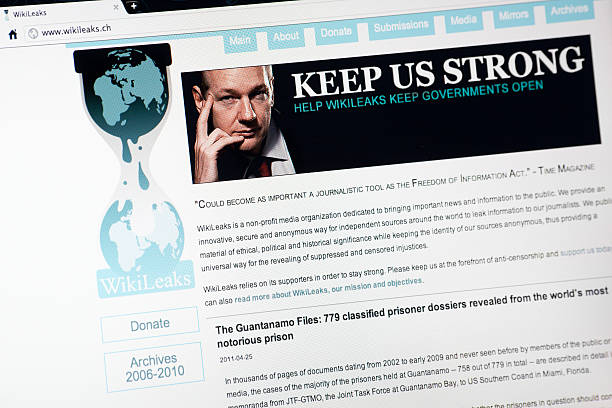
Beyond Shades of Grey: The Perception of Whistleblowers
When viewed through a nuanced lens that presents them as both heroes and villains, whistleblowers frequently elicit conflicting reactions. Some hail them as moral exemplars, unwavering in their quest for justice and the truth. Some demonise them, accusing them of betraying their nations or employers. Their acts may cause a national self-examination and necessary reforms, but they may also damage international relations and lower morale at home. The specifics of each case, the type of information revealed, and the possible consequences of the whistleblower's actions all influence how the public views whistleblowers.
Critique of Whistleblowing: Balancing the Potential Downsides
While whistleblowing is frequently commended, it is not devoid of criticism. Here are some key objections:
- Betrayal of Trust and Allegiance: Critics argue that whistleblowing undermines the fundamental trust and allegiance expected between employees and their organisations.
- Risk of Reprisal: Despite legal protections, whistleblowers remain vulnerable to retaliation in the form of termination, harassment, or social exclusion. This apprehension of retaliation can dissuade potential whistleblowers from coming forward.
- Organisational Impact: Whistleblowing can significantly tarnish an organisation's reputation, dampen employee morale, and impede financial stability. Public exposure to malpractice can erode consumer trust and precipitate lawsuits or regulatory scrutiny.
- National Security Implications: In the context of governmental whistleblowing, critics contend that divulging classified information, even with noble intentions, can jeopardise national security and endanger lives.
- Lack of Accountability and Due Process: Concerns persist that whistleblowers may assume the role of vigilantes, circumventing legal and organisational protocols. This could lead to an inadequate investigation and potentially besmirch the reputation of innocent individuals or organisations.
- Incomplete Information: Whistleblowers may not always possess a comprehensive understanding of the situation or the legal ramifications of their actions. This can result in the dissemination of inaccurate information and induce unnecessary panic.
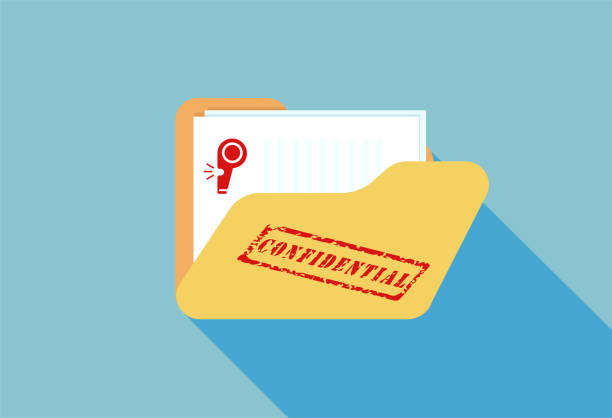
A Moral Balancing Act: The Whistleblower's Dilemma
It's rare that choosing to raise the alarm comes easily. It represents a difficult moral conundrum that forces people to weigh the possible advantages against the significant risks to their personal and professional lives. Whistleblowers frequently face emotional distress and public scrutiny in addition to having to negotiate a labyrinth of legal nuances and gather and present tangible evidence.
Seeking Assistance and Safeguarding Rights: Resources for Whistleblowers
Fortunately, resources exist to aid whistleblowers in traversing this arduous path. Here are a few examples (ensure to verify the legitimacy of these resources before inclusion):
- International Bar Association's Whistleblower Lawyers Network: (https://www.ibanet.org/LPRU/whistleblowing)
- Government Accountability Project: (https://whistleblower.org/)
- Whistleblower Network News: (https://whistleblowersblog.org/)
Government Policies and Legislation: A Global Overview
Many nations have passed laws to protect whistleblowers and motivate them to expose wrongdoing. Here's a look at a few notable examples:
1.United States: Whistleblowers in the financial industry and publicly traded companies have numerous protections under the Sarbanes-Oxley Act of 2002 and the Dodd-Frank Wall Street Reform and Consumer Protection Act of 2010.
2. European Union: Member states are required to put in place strong mechanisms to protect whistleblowers who report breaches of EU law under the 2019-endorsed European Union Whistleblower Protection Directive.
3. Australia: In both the public and private sectors, the Public Interest Disclosure Act 2013 provides a thorough framework for protecting whistleblowers.
India's Situation: Laws Protecting Whistleblowers
India has implemented the following laws and policies in an effort to protect whistleblowers:
- The Whistleblowers Protection Act of 2014, law gives people the ability to report to the appropriate authorities any instances of public officials engaging in criminal activity, corruption, or abuse of authority. It guarantees that the identity of the whistleblower will be kept secret and provides protection from reprisals.
- The Companies Act of 2013 requires some companies to set up procedures for employees to file complaints about corporate malfeasance.
Important Points to Remember
Even though these legal measures are a step in the right direction, problems still exist. The following are some points to consider:
- Effective Enforcement: Strong enforcement procedures and a cultural revolution that encourages whistleblowing are essential to the effectiveness of these laws.
- Scope and Extent: Whistleblowers in all industries may not receive sufficient protection under the current legal frameworks in many countries, including India.
- Continuous Improvement: In order to keep up with changing business practices and technological breakthroughs, whistleblower protection laws must be reviewed and adjusted on a regular basis.
Governments can create a safer environment for whistleblowers and ultimately promote a transparent and accountable culture by recognising these limitations and continuously improving.
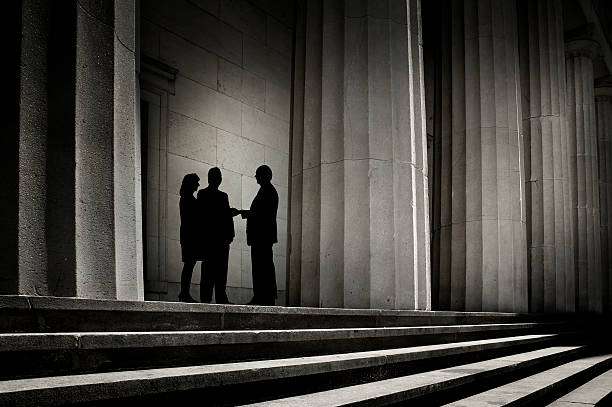
Conclusion: A Glimmer of Hope in a Complex Reality
In a society where truthfulness is frequently subordinated to silence, whistleblowers are vital to maintaining accountability and transparency. Their bravery acts as a beacon of hope, encouraging others to stand up for what is right even in the face of difficulty. Even though there is ongoing discussion about whistleblowing, one thing is clear: their actions have the power to spark positive change and open the door to a society that is fairer and more equal. Let's acknowledge the complexities at play, salute their bravery, and work to create a society in which those who come forward with information are protected rather than shunned for their priceless contributions.
Inputs from agencies
Image Source: Multiple agencies
*Disclaimer: These views presented in this article are my personal views and do not represent Vygr or Vygr Media.
© Copyright 2024. All Rights Reserved Powered by Vygr Media.
